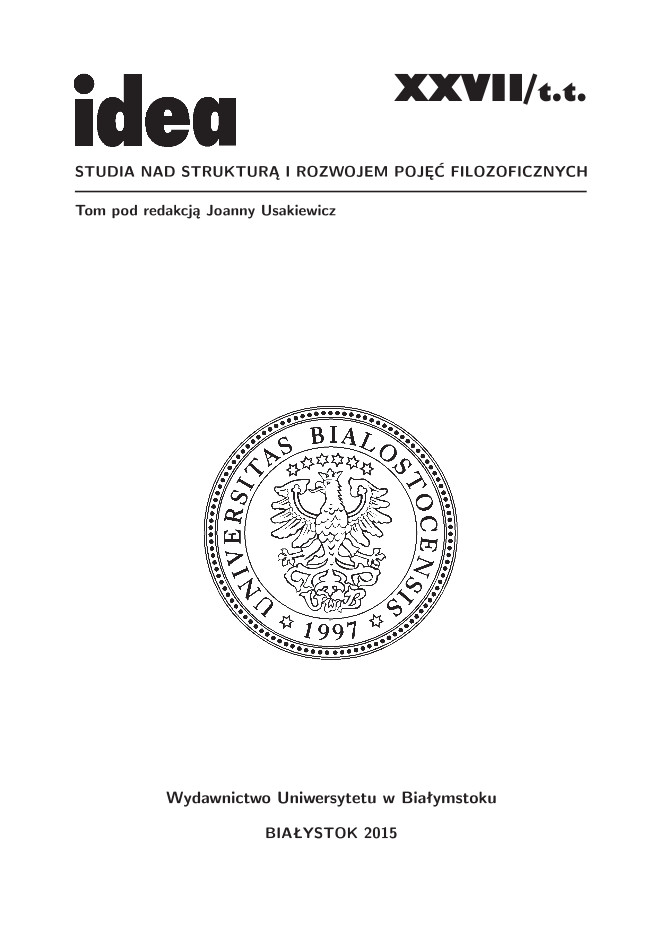Patriarchalizm i paternalizm w angielskiej myśli filozoficznej XVII wieku. Rozważania Filmera, Hobbesa i Locke’a
Patriarchalism and Paternalism in the English Seventeenth Century Philosophical Thought (Filmer, Hobbes and Locke)
Author(s): Agnieszka SzczapSubject(s): Philosophy, History of Philosophy, Early Modern Philosophy
Published by: Wydawnictwo Uniwersytetu w Białymstoku
Keywords: Robert Filmer; Hobbes; Locke; patriarchalism
Summary/Abstract: The political and philosophical thought of the seventeenth century, especially the Anglo-Saxon thought, combined the two seemingly separate issues: the ideal father of the family and the vision of the ideal kind. At that time, many writers developed a king-father analogy. They repeated that the king is like a father for his people and every father is the king for his family. The ideology of a patriarchal family and the idea of monarchical absolutism penetrate and complement each other, referring to the ideals of his father and the king. The king was to be treated like a father, the father (the patriarch) for family and servants – like a king. One of the supporters of patriarchalism and paternalism was Sir Robert Filmer. Another one was his most famous adversary John Locke. Filmer was a Protestant political writer, defender of the absolute power of the king and the patriarchal family. The controversy between Filmer, Hobbes and Locke in the field of political thought intertwined with their reflections on the family.
Journal: Idea. Studia nad strukturą i rozwojem pojęć filozoficznych
- Issue Year: 1/2015
- Issue No: XXVII
- Page Range: 305-314
- Page Count: 10
- Language: Polish

